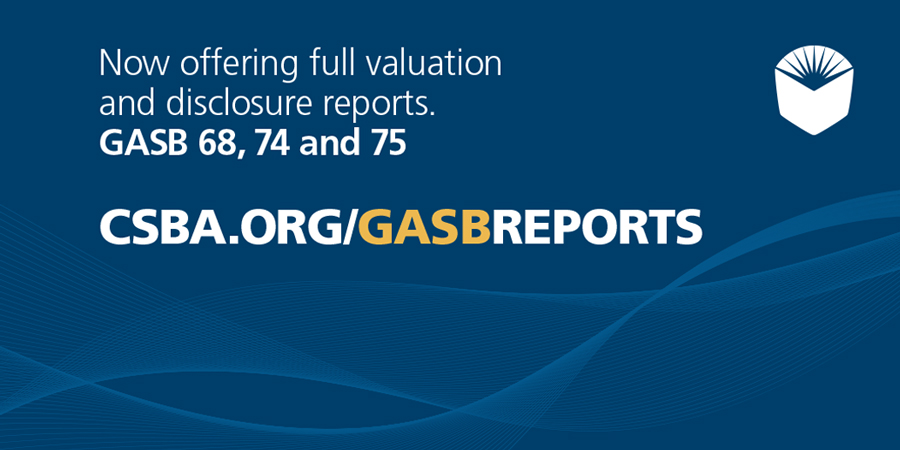The California Department of Education on March 26 released a template for the Expanded Learning Opportunities Grant Plan that LEAs must complete and adopt at a public meeting on or before June 1, 2021, as a condition for receiving the grant. The template can be found on the CDE’s website and at https://bit.ly/3n19LOw. Approved plans must be submitted to the county office of education, the CDE or the LEA’s chartering authority within five days of adoption, as applicable. The plan will explain how the LEA will use funds to implement its learning recovery program.



Troy Flint | tflint@csba.org
Managing Editor:
Kimberly Sellery | ksellery@csba.org
Marketing Director:
Serina Pruitt | spruitt@csba.org
Staff Writers and Contributors:
Alisha Kirby | akirby@csba.org
Heather Kemp | hkemp@csba.org
Mike Ambrose | mambrose@csba.org
Graphic Design Manager:
Kerry Macklin | kmacklin@csba.org
Senior Graphic Designer:
Mauricio Miranda | mmiranda@csba.org
Suzanne Kitchens | Pleasant Valley SD
President-elect:
Susan Heredia | Natomas USD
Vice President:
Susan Markarian | Pacific Union ESD
Immediate Past President:
Xilonin Cruz-Gonzalez | Azusa USD
CEO & Executive Director:
Vernon M. Billy
California School News (ISSN 1091-1715) is published 11 times per year by the California School Boards Association, Inc., 3251 Beacon Blvd., West Sacramento, CA 95691. 916-371-4691. $4 of CSBA annual membership dues is for the subscription to California School News. The subscription rate for each CSBA nonmember is $35. Periodicals postage paid at West Sacramento, CA and at additional mailing office. POSTMASTER: Send address changes to California School News, 3251 Beacon Blvd., West Sacramento, CA 95691.
News and feature items submitted for publication are edited for style and space as necessary.

Because the stakes are so high, it’s critical that school districts have the tools and flexibility required to meet student needs and family preferences this summer, this fall and for years to come. We are facing an inflection point for public schools and we must treat this crisis as an opportunity to re-evaluate and reinvigorate the ways in which we serve students. If we do not face this challenge head-on, public trust in our school system will erode, as will our enrollments.


Experts discussed how districts can best leverage state and federal funding to support students and examples of how some LEAs are planning for summer during the April 27 webinar, “School’s in for Summer: Strategies for Successful Summer Programs and Beyond.” The webinar was the first in a two-part series hosted by CSBA addressing strategies, investments and best practices that can guide schools as they prepare for summer school and expanded learning initiatives.
The COVID-19 pandemic has drastically affected the lives of students and exacerbated existing inequalities, said CSBA Director of Research and Education Policy Development Mary Briggs.

Historically, Asian American/Pacific Islander Heritage month has been met with lesson plans highlighting the accomplishments of AAPI individuals, preparing dishes from different AAPI cultures or reading books and viewing art showcasing the experience or talents of different people of AAPI descent, past and present.
This year — against a grim backdrop that includes a nearly 150 percent spike in hate crimes against those of AAPI descent in the past year found by the Center for the Study of Hate and Extremism at California State University, San Bernardino — there is a stronger sense of urgency to avoid sugarcoating history, and to address the trauma that both students and their families are facing.
School board trustees, state legislators, federal advocates, business leaders and more discussed the critical importance of universal broadband access to the state’s K-12 schools and its economic future during an April 20 CSBA webinar, “Broadband for California: Connecting to Our Promise.”
CSBA CEO & Executive Director Vernon M. Billy said it is unconscionable that that all children still do not have adequate and consistent internet service. Inequitable access to technology is hindering the education of some students, particularly those in low-income or rural areas, and effectively bars families from taking proper advantage of everything from accessing telehealth, online banking and government services.
“The internet is essential for full participation in our modern society,” Billy said. “We’ve had decades to solve this problem but we’ve waited until a time of crisis. We can’t wait any longer — the time for universal broadband access is now.”
Students of color, those from low-income backgrounds, English learners, students with disabilities, homeless youth and students in foster care were less likely to have rigorous, engaging and positive educational experiences before the pandemic. There is a high probability that school closures will have deepened these existing inequities in our education system. As boards discuss continued distance learning and reopening schools, they can consider the following questions:
- How are we ensuring all students maintain access to the devices they need to fully participate in distance learning? What are the considerations for students who want to continue with distance learning now that schools are reopening?
- How are we ensuring access to reliable, high-speed internet for all students whose families choose to continue distance learning?
U.S. Supreme Court to decide whether schools may discipline students for off-campus speech

Nominations open for CCBE Officers and Outstanding Legislator Award
Nominations are now being accepted for CCBE 2022 President-elect, Vice President and Treasurer. Candidates do not need to be current or previous members of CSBA’s Delegate Assembly or CCBE Board of Directors. Nominations must be received by CCBE no later than Friday, July 31 at 5 p.m.
Outstanding Legislator Award
Register early for the CCBE Annual Conference
The planning committee is working to provide a conference that will inspire attendees to enhance their knowledge about the county board member leadership role, make decisions through an equity lens to effectively respond to the diverse needs of students, build leadership skills to become effective agents of change through a high-functioning team, and learn innovative tools and policies that are necessary to support county board members.








